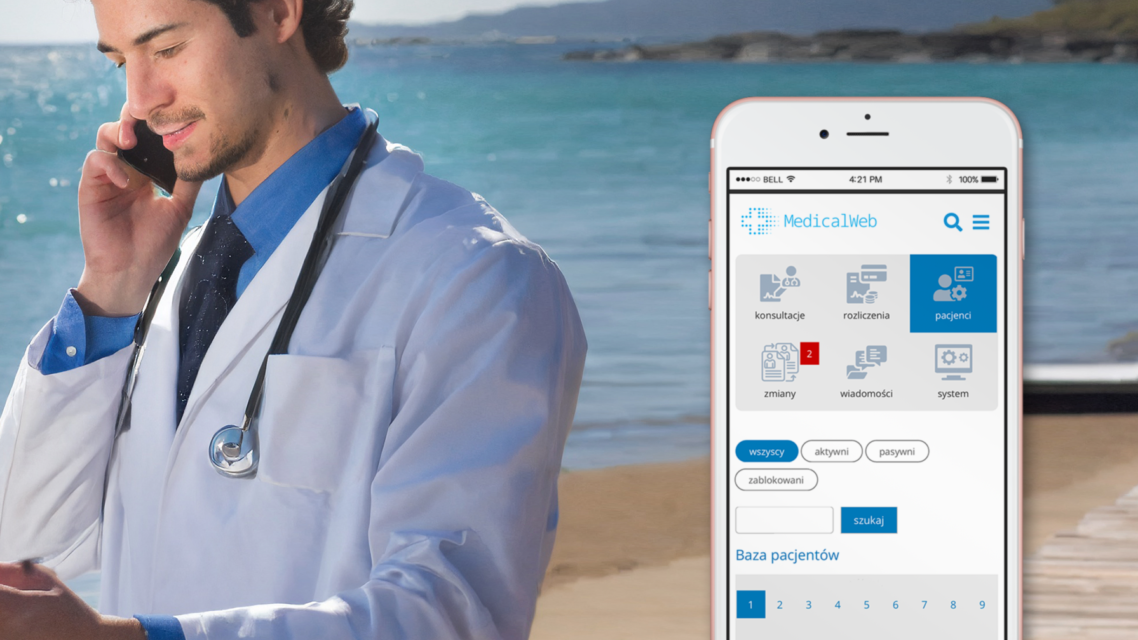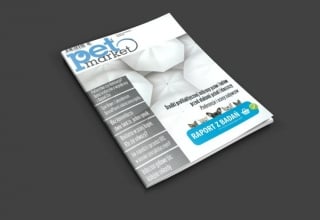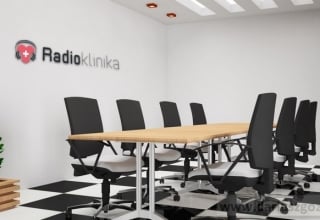W ostatnich trzech latach w Polsce udzielono ponad 124 miliony teleportad. To nie eksperyment – to rzeczywistość systemowa. Coraz więcej lekarzy, szczególnie w POZ i opiece specjalistycznej, łączy pracę stacjonarną z konsultacjami zdalnymi. Dobrze wdrożona telemedycyna nie jest półśrodkiem – jest narzędziem systemowego porządkowania dostępu do świadczeń.
Teleporada to pełnoprawna forma usługi medycznej
Zgodnie z ustawą o zawodzie lekarza (art. 42 ust. 1), badanie i diagnoza mogą zostać przeprowadzone z wykorzystaniem systemów teleinformatycznych. Konsultacja zdalna nie jest formą gorszej jakości – podlega tym samym wymogom etycznym, formalnym i merytorycznym co wizyta w gabinecie. Lekarz podejmuje decyzje diagnostyczne i terapeutyczne na podstawie dokumentacji, wywiadu i zgodnie z aktualną wiedzą medyczną – niezależnie od formy kontaktu.
Telemedycyna odpowiada na realne potrzeby pacjentów
Z badań SW Research (2023):
- 83% Polaków korzystało z telemedycyny,
- 56% wykorzystuje ją w leczeniu przewlekłym,
- 50% w sytuacjach nagłych, gdy brak było dostępu do placówki.
W praktyce oznacza to, że telemedycyna nie jest dodatkiem, lecz stałym elementem ścieżki leczenia dla znacznej grupy pacjentów. Daje realną odpowiedź na problemy z dostępnością do świadczeń – zwłaszcza w mniejszych ośrodkach.
Zakres zastosowań jest szeroki
Najczęstsze formy:
- przedłużenie leczenia (e-recepty, e-ZLA),
- analiza wyników badań,
- kontrola pacjentów przewlekle chorych,
- wstępna selekcja (triage),
- edukacja zdrowotna,
- telemonitoring pacjentów z chorobami przewlekłymi.
Telemedycyna to także organizacja pracy
Wprowadzenie konsultacji zdalnych pozwala:
- odciążyć gabinety z prostych przypadków,
- zminimalizować opóźnienia w dostępie do lekarza,
- skrócić czas administracyjny,
- poprawić ergonomię i elastyczność pracy zespołów medycznych,
- zwiększyć dostępność lekarzy bez pogarszania jakości.
Nie zastępuje, lecz uzupełnia
Konsultacja zdalna nie zastępuje badania fizykalnego, ale może być skutecznym narzędziem w wielu sytuacjach klinicznych. Kluczem jest trafny dobór przypadków, zachowanie standardów i jasne granice odpowiedzialności.
Wyzwania: dane, edukacja, jakość, zaufanie
W polskich realiach nadal potrzebne są:
- standaryzacja narzędzi i jakości usług,
- edukacja pacjentów i lekarzy,
- lepsze wsparcie ergonomiczne i prawne w systemach,
- klarowne zasady ochrony danych medycznych,
- przeciwdziałanie nadużyciom i „pseudomedycznym” platformom.
Patologie rynku: „rec**tomaty” i telekonsultacje bez odpowiedzialności
Dynamiczny rozwój rynku usług zdalnych spowodował, że obok rzetelnych podmiotów medycznych pojawiły się także firmy, których celem jest nie leczenie, lecz masowe wystawianie e-recept – często bez rzeczywistej oceny stanu zdrowia pacjenta. Tak zwane „rec**tomaty” – zautomatyzowane formularze prowadzące do wystawienia recepty – nie mają nic wspólnego z opieką zdrowotną.
To nie tylko obniża prestiż zawodu lekarza, ale też zaburza rynek i zagraża bezpieczeństwu pacjentów. Z perspektywy lekarzy, wiąże się to z ryzykiem odpowiedzialności zawodowej, prawnej i reputacyjnej. Przeciwdziałanie temu zjawisku jest dziś koniecznością – zarówno dla ochrony zdrowia publicznego, jak i integralności zawodu medycznego.
Podsumowanie
Telemedycyna nie jest zagrożeniem dla zawodu lekarza, lecz szansą na jego racjonalne przekształcenie. To narzędzie, które pozwala odzyskać czas, poprawić dostępność i jakość opieki oraz zadbać o organizację pracy zespołów medycznych. Nie chodzi o rewolucję. Chodzi o ewolucję – mądrą, opartą na wiedzy, standardach i odpowiedzialności.
Chcesz wiedzieć więcej: https://medweb.com.pl








